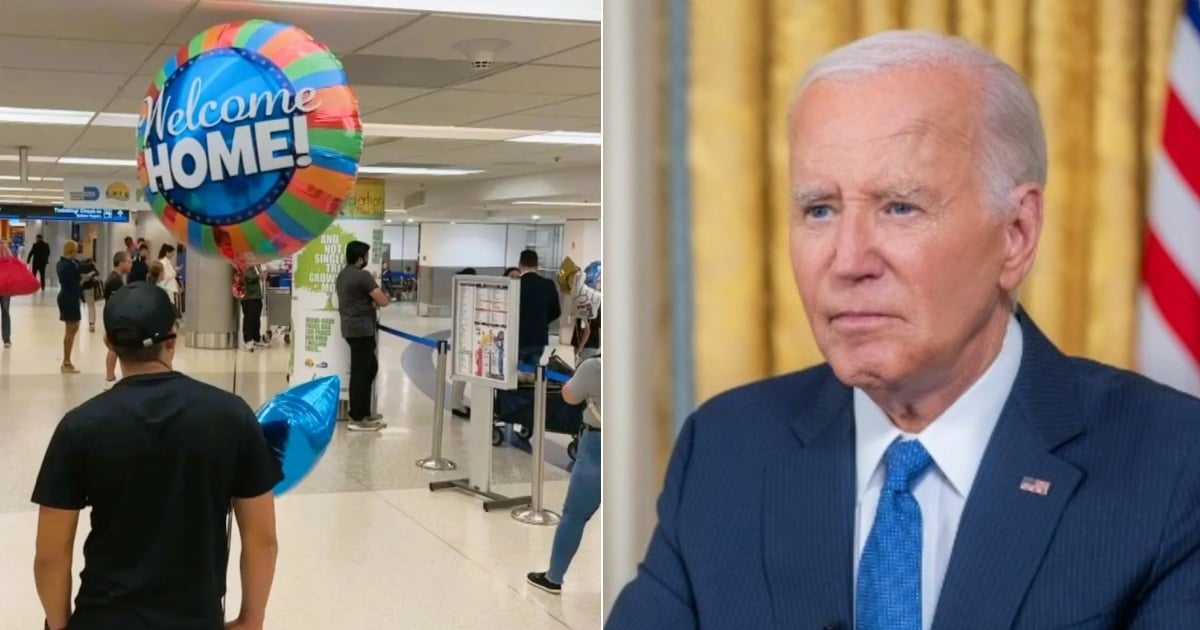The humanitarian parole program for migrants from Cuba, Venezuela, Haiti, and Nicaragua is coming to a close after two years of operation. The Biden administration announced on Friday that it will not renew this benefit for these nationalities once it expires: by the end of the month for Venezuelans and in January for the others. This decision impacts half a million individuals, who will need to find legal alternatives to remain in the country or face potential deportation in the coming months.
Introduced in October 2022, the program aimed to provide a legal pathway for Venezuelan migrants entering the United States irregularly. To date, about 117,000 Venezuelans have been protected under this initiative, allowing them to live and work in the U.S. for two years. In January 2023, the Biden administration expanded the program to include citizens from Haiti, Nicaragua, and Cuba, who were also crossing the border in significant numbers.
Impact of the Program's Termination
According to the Department of Homeland Security (DHS), as of August 2023, approximately 530,000 immigrants from these four nations reside in the U.S. thanks to the parole program. This includes 210,000 Haitians, 117,000 Venezuelans, 110,000 Cubans, and 93,000 Nicaraguans. With the program's conclusion, these individuals face potential deportation as their permits expire.
"Their parole will automatically terminate at the end of their parole period (up to two years from the date they were granted parole in the United States). If they have not applied for a legal status or an authorized stay period, they will need to depart the U.S. before their parole expires or may be subject to removal proceedings," states a DHS website update. "If not granted legal status or an authorized stay, they may begin accruing unlawful presence in the U.S."
Criticism and Political Tension
Despite the parole not offering a path to permanent residency or citizenship, immigrant advocacy groups had hoped for an extension from President Biden, particularly because of precedents set with re-paroles for Ukrainians and Afghans. Since the program's implementation, irregular crossings from Haiti, Nicaragua, Venezuela, and Cuba have decreased by 99%.
The program has faced criticism, especially from Republicans. Donald Trump and his allies have labeled it illegal, claiming it abuses presidential authority. Before Biden's decision, the Republican candidate had already vowed to dismantle the program if re-elected. "Prepare to leave," he said in a Fox News interview a week ago.
Alternative Legal Options
While new parole applications will still be accepted, they will only provide protection for a maximum of two years without renewal. Some parole beneficiaries might qualify for other programs. Venezuelans and Haitians, for example, could apply for Temporary Protected Status (TPS) if they arrived before June 4, 2024, and July 31, 2023, respectively. Currently, 344,335 Venezuelans and 200,005 Haitians live in the U.S. under TPS, which also has expiration dates: September 2025 for Venezuelans and February 2026 for Haitians.
Cubans may apply for permanent residency through the 1966 Cuban Adjustment Act, allowing them to request residency after a year in the U.S. However, the situation is more challenging for the 93,000 Nicaraguans, as they are not eligible for TPS and must seek asylum—an increasingly difficult option under new Biden administration restrictions.
If these immigrants cannot find other legal options, they could face deportation proceedings, though it's unclear how these would be executed, given that countries like Cuba, Nicaragua, and Venezuela do not accept U.S. deportations, while Haiti does.
